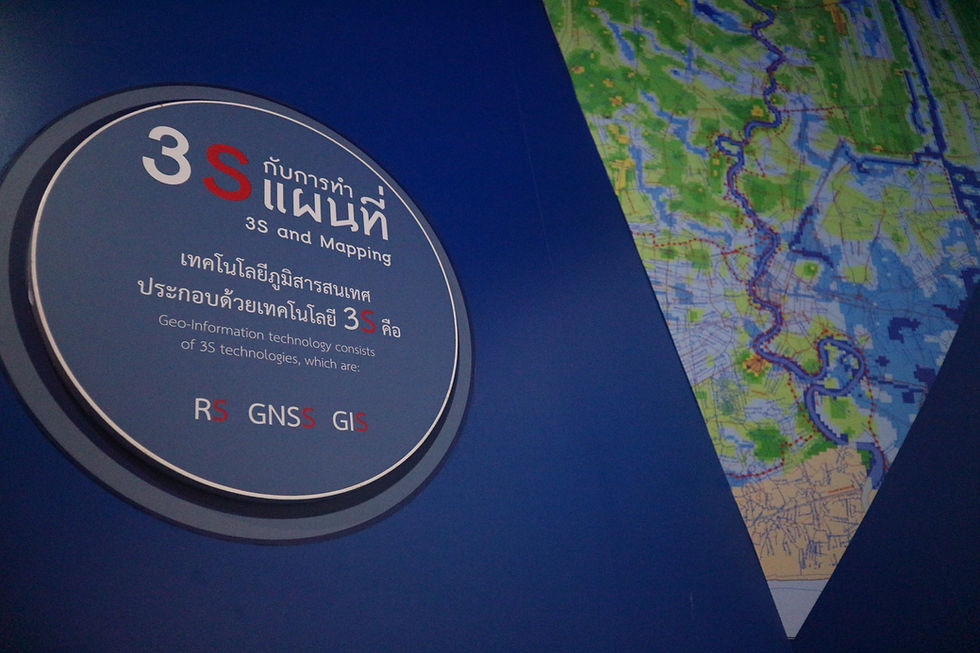Viễn thám là gì?
- NKT

- Sep 14, 2020
- 3 min read
Hôm trước ngồi xem lại những video trên youtube mà mình lưu, mình thấy có nhiều video về viễn thám, nên mình quyết định sẽ xem và dịch dần dần những video này sang tiếng Việt (hoặc cả tiếng Pháp nữa :P). Mở đầu sẽ là một video có tên là What is remote sensing? - Viễn thám là gì? của kênh CIRESvideos, video này được up lên từ năm 2011, nên cũng có những số liệu không còn đúng với hiện tại, và video cũng chỉ nói rất khái quát về viễn thám chứ không nói viễn thám hoạt động như thế nào, nhưng theo mình video cũng mang đến nhiều ý kiến hay và cũng nói sơ được về khả năng của viễn thám như thế nào ^^
Rough transcription:
Remote sensing is observing a medium, a process, some phenomenon without ever coming in direct contact with that phenomenon, so unlike a lab experiment or where you go to a place and make an in-situ measurement, we're actually touching the medium, remote sensing is observing it remotely from a distance, and this actually provides a different kind of perspective on things. When you're part of your medium, you're part of your experiment, you're part of the experience, you get one perspective that's crucial, you get a very different one when you're removed from it, when you're looking from space, when you're looking from four or five hundred miles away or in some cases twenty thousand miles away. We can start
up close we can stand in a place and look at it and we can zoom out and all of a sudden it takes on new meaning: the trees are part of a broader system that sits on a landmass, that is a country, that's part of a continent, that sits in an ocean and as we step back further and further and look at those same trees we may not see the leaves from far away but we see the trees and how they fit into a broader system, the clouds that surround them, the ice that's far north or far south of them, the oceans that really are affecting the climate, that is causing those trees to grow.
You know satellites are really the best way to measure the effects of climate change because just one person on the ground in one place, it's very difficult to say of what you see in front of you is due to climate change or due to some local phenomena, or it's just the weather, and from space, we can look at the whole Earth, and we can integrate these observations of the whole Earth, and really make a better assessment about what's causing these changes and what their long-term prognosis is.
A decade ago the Earth-observing system was beginning to be put in place, a series of satellites designed to observe the earth, take a snapshot of the Earth over period of years to understand its behavior, well today there are 14 Earth-observing satellites orbiting right now, and of those 14, 13 are passed their designed life, they're living on borrowed time and could go away at any moment.
I think funding for these satellite missions is very much threatened right now. There doesn't seem to be a lot of support and political circles right now for these missions, and so that's something that as a scientist, we're trying to do is to educate people about why these are so important like I said the GRACE mission has been really, in my opinion, one of the best tools we have for measuring the impacts of climate change on the earth, it tells us where the water is going and that's you know when we talk about climate change everyone thinks about the temperature but it's really the water availability that it's going to be the big impactor, and so we'll be able to tell with GRACE, you know where we're losing water, where there's going to be prolonged droughts, where there's going to be more flooding, where the ice is melting. It's just this wonderful tool and now we're going to lose this tool for probably two to three years, and you know it's really unfortunate that we've kind of take away one of our highs in the sky.
The Earth is changing in ways that will affect our lives, and just as we're realizing how and why these changes are occurring, our ability to understand them is diminishing, and frankly, our future, our success in the future as a society really depends is intimately linked to our ability to anticipate what's coming.
"Man must rise above the Earth - to the top of the atmosphere and beyond - for only thus will he fully understand the world in which he lives." - Socrates
Tiếng Việt: (sắp có)



Comments